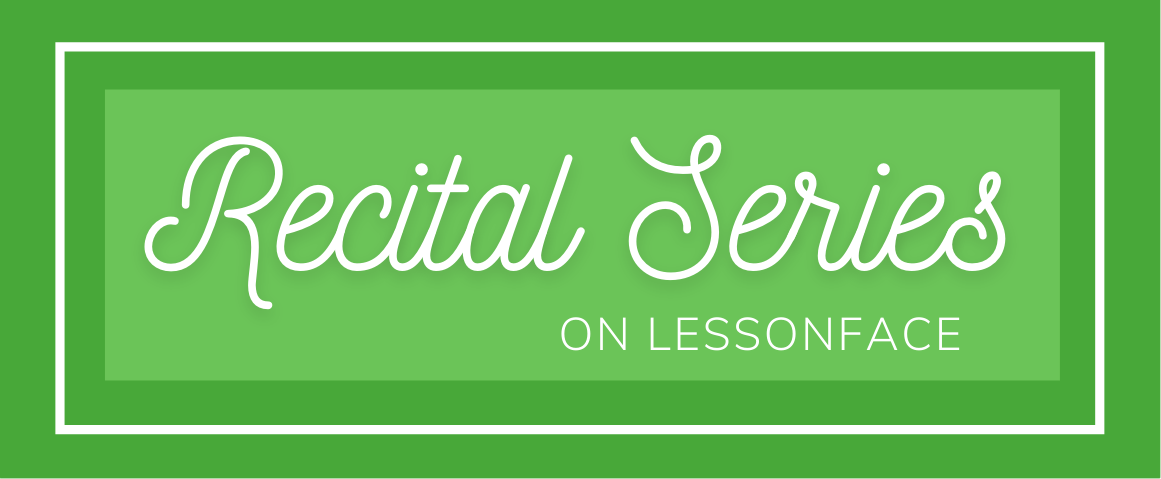Many guitar students get curious about music theory at some point during their studies. After all, a lot of us are 'thinkers' and like to understand how things work.
The guitar can seem like a mysterious instrument to a beginner, with little rhyme or reason... six strings (though sometimes seven!), a varying number of frets (depends on the kind of the guitar), multiple ways to play a single note, finger one chord. With just a little bit of background knowledge, though, things begin to make a lot more sense. A little music theory can go a long way on the guitar. Once we understand some fundamentals, we start to see patterns everywhere. Within weeks, we can find (albeit with some calculation) any note, and find a few different versions of a single chord. The more we play around, the more adept we become, and the better we understand what we're playing.
If you've been curious about music theory, I definitely recommend diving in. One book that I often recommend to students is called 'Edly's Music Theory for Practical People' It has a casual, conversational tone, yet explains the important concepts very clearly. Do all the exercises! I worked through about half of it before I applied to music school, and I ended up placing out of my first semester of theory - all due to that book!
Some students find Edly's a bit too cartoony (it IS cartoony, be warned!). If you prefer a more serious tone, I recently recommended 'The Practical Guide to Modern Music Theory for Guitarists' by Joseph Alexander to a student of mine. I haven't owned this book, but made the recommendation from looking at the table of contents, first few pages, and reviews online. So far that student is enjoying it.
What other theory resources do students and teachers recommend for guitarists? What theory knowledge has helped you the most to understand the instrument? Any books or concepts that you wouldn't recommend? How has acquiring some understanding of music theory changed the way you view the instrument? Any revelations or paradigm shifts once you understood certain concepts?





Why is it that classical guitar does not appeal to put much weight on teaching chords? This is reflected in several method books I own. I learned thru Parkening's books with a teacher. When I finished both Vol 1 and 2, I knew very little of chords. My fingers never went thru the training of adapting to different chord shapes quickly and smoothly and therefore always very slow when playing music with block chords. Whenever learning a new music, I always feel lack of chord knowledge put me at a disadvantage. Lately I started this experiment in drawing out the fretboard diagrams above each measure and practice each chord to get my fingers used to the change. I worked thru Estudio 1 in Twenty Studies for the guitar by Fernado Sor but it was a real challenge even though I still can't name most of the chord names. In the past, from the recommendation of my former teacher, I worked on a 5 Chord Songbook with popular songs. That didn't last long because I wasn't interested in the music. I did find the content useful though with fretboard diagrams and chord names spelled out clearly. I'd like to hear any thought about chord in CG playing and any suggestion. Thanks for reading.
This book was recommended by a fellow guitarist: Basic Element of Music Theory for the Guitar by Aaron Shearer, available from Amazon. It is a workbook with 41 pages for scales, intervals and Chords.
That's an interesting question, Frank! It's true that few classical guitar methods cover common chord shapes and their names. Rather, those methods teach you how to read the notes on the staff, and the notes tell you where to put your left hand fingers. Those method books might be assuming serious classical guitar student would study music theory along with classical guitar technique and repertoire. And with music theory, they'd be able do analyze any piece their learning and identify chords and harmonic progressions. That may be the case for young conservatory or university students. But of course, there are many students who pursue classical guitar as a hobby and lack the time or interest to learn theory. I can definitely understand how those students could feel a bit disappointed to have missed out on knowledge that seems basic
Here are some points guitarists to consider about chords:
(1) A chord is a combination of three or more notes. A chord's name is determined both by the notes that make it up and the musical context in which it comes up. Also keep in mind that if a note repeats within a chord, it doesn't change the chord's name or quality.
(2) The guitar is a complicated instrument. There are many ways to play a single note. Therefore, there are many ways to play any one chord. For example, a G Major chord needs to contain 3 notes: G, B, and D. If you understand the fretboard and music theory, you can come up with dozens of shapes on the guitar that could qualify as a G chord. The different voicings (versions) have different sound qualities, but they all can function as G chords.
(3) Classical guitar tells you exactly where to put your fingers. Even though you may not have known it, I guarantee you have played many versions of G chords in your classical guitar repertoire.
(4) Common chord charts often show only one version of each chord. Guitarists who depend on these chord charts often need a G chord over which they can strum, fingerpick, and/or sing a melody. The version that most charts show is a version that uses as many strings as possible and is fairly easy to play, because that is what is useful to most strummers and singers. With a chord chart and some concentrated left-hand work, a beginning guitarist can learn the ten or so most common chords have access to whole world of songs. However, that doesn't mean they understand more than a classical guitarist about chords or music theory. They've just memorized chord shapes and names and learned to use them.
(5) Any guitarist of any genre who wants to understand their instrument should learn music theory. Without theory, you are just following instructions. With it, you understand the logic behind those instructions.
For any student thinking about dabbling in theory, Lessonface offers this Practical Music Theory course. The course explains basic concepts of music theory, intervals in a 30-minute video. You can get 30 days free access to the video if you sign up by Jan 31st. It's definitely worth checking out and a great way to get started on understanding music more deeply.
Learning theory really opened a lot of doors for me on the guitar. I began by learning all the natural notes on the neck. Then I began playing through the CAGED shapes for the major scale and calling out each note as I picked it. It took me about three weeks to memorize the fretboard. From there I went into learning triads and how to build a chord and their inversions and so on. I'm not a theory major but I have a very solid understanding and continue to build on my knowledge on a regular basis.
Thanks for jumping in, Brad! I agree with you that theory opens a lot of doors. Concepts like chord shapes/names seem arbitrary and mysterious to beginners with no musical background. Music theory sheds light on the logic and patterns built into the guitar and makes one a more independent and capable musician. The CAGED system and natural notes are great places to start, and your progression seems logical and practical. I'm sure some students can benefit from that knowledge :)
Glad to jump in! Theory can seem intimidating and is if you try to learn it without starting with the basics. I just started working with a student locally who wants to learn theory but he was jumping into modes without any knowledge of the notes on the neck or the major scale and its intervals. After finding what he did and didn't know already I realized he needed to start from the ground up. His entire attitude has shifted to "I can do this" now.
That's really cool about your student Brad! I guess modes are appealing because they can sound exotic and exciting to fresh ears, but it's true, it's impossible to make use of them without knowing the basics. Do you use a book to teach theory to guitar students that you'd recommend? Or do you have your own way you like to teach it, without a book?
I'm especially curious for books that guide students in applying theory to their own practice. I have several students who love doing lots of reading/homework between classes, and I'd like to have more resources to recommend. I really like how Edly's (mentioned the first post) explains things, but I wish it had more exercises to guide students in working through things the way they need to. It's one thing to understand intellectually how scales and keys work. It's a much longer process to digest that material so thoroughly that it becomes second nature on the guitar and readily available at one's fingertips, without counting and calculating.
On another topic, do you have any theory books you'd recommend for younger students?
Here's some info that's relevant to this post:
Lessonface teacher Emily Zimmer is teaching a course in February on Music Theory for Guitarists. It starts Feb 8 and is only 4 classes long, so
Guitar students, this would be great for any of you curious about theory. It's hard to fit theory into a normal 30 or 45-minute lesson routine, this would be a great supplement to your regular lessons.
Teachers, spread the word to students who might be interested : )
I saved before I was ready, but the phrase I wanted to complete was that it's a very short commitment with just 4 classes, and will be great to start of your theory exploration with live instruction!
Hi Leah! Sorry for the delay, I missed your reply somehow. I teach theory without a book as that's the way I learned it from the basics. I'll teach them with the guitar in hand and then make some notes for them to go reference after the lessons. Books can be a good tool but if the student starts reading too far ahead questions might come up that they're not ready for yet. That happened for me personally as I tried jumping in on theory with the Circle of Fifths before I knew intervals, notes, triads etc. Fretboard Roadmaps was my first theory-based book and while it has good info in it I jumped too far ahead because there was no one guiding me at the time.